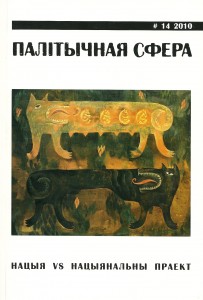Национализм и его двойственность - Утвердительная и отрицательная самости в греческом национализме
Nationalism and its Ambivalence. Positive and Negative Selves in Greek Nationalism
Author(s): Hakkı TaşSubject(s): Politics / Political Sciences
Published by: Палітычная сфера
Keywords: National Identity; Greek Nationalism; Ambivalence; Hellenism; Nation-building.
Summary/Abstract: This paper focuses on the psychological functions of nationalism using the case of the modern Greek nation-building process. It also attempts to prove that nations embrace multiple, sometimes conflicting references from the past in order to maintain the national selfesteem. The resulted ambivalence in the very definition of the nation can be compensated by an emphasis on the differences from the outgroups, namely, enemy or rival nations. For the analysis, two terms are operationalized: the positive and negative national selves, which underline the constructed and relational character of nationalism. The selective use of the Hellenic and Byzantine past for the formation of Greek identity, the creation of the significant Other, and finally the impact of the European Union on the conception of Greekness are analyzed within this framework.
Journal: Палітычная сфера. Часопiс палiтычных даследаванняу
- Issue Year: 2010
- Issue No: 14
- Page Range: 114-130
- Page Count: 17
- Language: Belarusian

